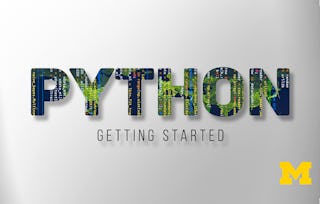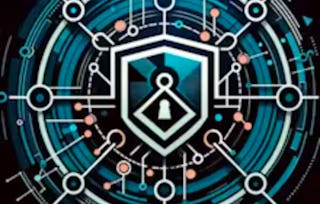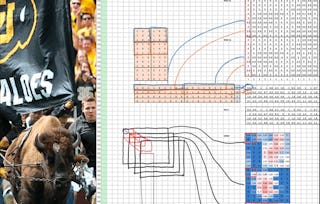Computer Science
Most popular
 Status: Free TrialFree TrialU
Status: Free TrialFree TrialUUniversity of Michigan
Build toward a degree
Specialization
 Status: Free TrialFree TrialU
Status: Free TrialFree TrialUUniversity of Michigan
Course
 Status: Free TrialFree TrialI
Status: Free TrialFree TrialIIBM
Build toward a degree
Professional Certificate
 Status: Free TrialFree TrialStatus: AI skillsAI skills
Status: Free TrialFree TrialStatus: AI skillsAI skillsBuild toward a degree
Professional Certificate
Trending now
 Status: Free TrialFree TrialI
Status: Free TrialFree TrialIIBM
Build toward a degree
Professional Certificate
 Status: Free TrialFree TrialStatus: AI skillsAI skillsG
Status: Free TrialFree TrialStatus: AI skillsAI skillsGGoogle
Build toward a degree
Professional Certificate
 Status: Free TrialFree TrialStatus: AI skillsAI skills
Status: Free TrialFree TrialStatus: AI skillsAI skillsBuild toward a degree
Professional Certificate
 Status: Free TrialFree TrialStatus: AI skillsAI skillsG
Status: Free TrialFree TrialStatus: AI skillsAI skillsGGoogle
Build toward a degree
Professional Certificate
Online degrees
 U
UUniversity of Colorado Boulder
Earn a degree
Degree
 N
NNortheastern University
Earn a degree
Degree
 U
UUniversity of Colorado Boulder
Earn a degree
Degree
 H
HHeriot-Watt University
Earn a degree
Degree
Filter by
LanguageRequired *
The language used throughout the course, in both instruction and assessments.
Learning ProductRequired *
LevelRequired *
DurationRequired *
SkillsRequired *
SubtitlesRequired *
EducatorRequired *
All results
 Status: Free TrialFree TrialStatus: AI skillsAI skillsG
Status: Free TrialFree TrialStatus: AI skillsAI skillsGGoogle
Skills you'll gain: Threat Modeling, Network Security, Threat Management, Vulnerability Management, Intrusion Detection and Prevention, Hardening, Computer Security Incident Management, Security Management, Cyber Attacks, Incident Response, Cybersecurity, Network Protocols, Threat Detection, Cloud Security, Bash (Scripting Language), Debugging, Linux, Interviewing Skills, Python Programming, SQL
Build toward a degree
4.8·Rating, 4.8 out of 5 stars63K reviewsBeginner · Professional Certificate · 3 - 6 Months
 Status: Free TrialFree TrialStatus: AI skillsAI skillsG
Status: Free TrialFree TrialStatus: AI skillsAI skillsGGoogle
Skills you'll gain: Responsive Web Design, Storyboarding, Wireframing, User Experience Design, UI/UX Research, Usability Testing, Information Architecture, Presentations, User Research, Web Design, Figma (Design Software), Design Reviews, Persona (User Experience), Web Content Accessibility Guidelines, User Story, Data Ethics, User Centered Design, Usability, Interviewing Skills, Applicant Tracking Systems
Build toward a degree
4.8·Rating, 4.8 out of 5 stars97K reviewsBeginner · Professional Certificate · 3 - 6 Months
 Status: Free TrialFree TrialI
Status: Free TrialFree TrialIIBM
Skills you'll gain: Prompt Engineering, Prompt Patterns, Software Development Life Cycle, Retrieval-Augmented Generation, Software Architecture, Computer Vision, LangChain, ChatGPT, Responsive Web Design, Restful API, Generative AI, Responsible AI, IBM Cloud, Large Language Modeling, Data Import/Export, AI Workflows, Python Programming, Engineering Software, Machine Learning, Data Science
Build toward a degree
4.6·Rating, 4.6 out of 5 stars80K reviewsBeginner · Professional Certificate · 3 - 6 Months
 Status: Free TrialFree TrialStatus: AI skillsAI skills
Status: Free TrialFree TrialStatus: AI skillsAI skillsSkills you'll gain: Cloud Deployment, CI/CD, Software Development Life Cycle, Open Web Application Security Project (OWASP), Continuous Integration, Istio, Linux Commands, Software Architecture, Agile Software Development, Scrum (Software Development), Cloud Computing Architecture, Application Deployment, Test Driven Development (TDD), Restful API, Git (Version Control System), DevOps, Grafana, Software Engineering, Data Import/Export, Application Development
Build toward a degree
4.6·Rating, 4.6 out of 5 stars64K reviewsBeginner · Professional Certificate · 3 - 6 Months
 Status: Free TrialFree TrialStatus: AI skillsAI skills
Status: Free TrialFree TrialStatus: AI skillsAI skillsSkills you'll gain: Cloud Deployment, Software Development Life Cycle, Open Web Application Security Project (OWASP), Istio, Linux Commands, Software Architecture, Application Deployment, Kubernetes, NoSQL, Bash (Scripting Language), MongoDB, Restful API, Shell Script, Django (Web Framework), Object-Relational Mapping, Git (Version Control System), Grafana, Microservices, Data Import/Export, Python Programming
4.6·Rating, 4.6 out of 5 stars52K reviewsBeginner · Professional Certificate · 3 - 6 Months
 Status: Free TrialFree Trial
Status: Free TrialFree TrialSkills you'll gain: Software Development Life Cycle, Linux Commands, Software Architecture, Bash (Scripting Language), Restful API, Shell Script, Git (Version Control System), GitHub, Flask (Web Framework), Software Design, Version Control, File Management, Application Deployment, Linux, Software Development Methodologies, Software Design Patterns, Data Import/Export, Programming Principles, Web Scraping, Python Programming
4.6·Rating, 4.6 out of 5 stars51K reviewsBeginner · Specialization · 3 - 6 Months
 Status: Free TrialFree TrialU
Status: Free TrialFree TrialUUniversity of Michigan
Skills you'll gain: Database Design, Data Processing, Web Scraping, Data Visualization, Relational Databases, Restful API, Web Services, SQL, Databases, Data Visualization Software, JSON, Interactive Data Visualization, Extensible Markup Language (XML), Data Structures, Programming Principles, Data Cleansing, Network Protocols, Data Analysis, Python Programming, Computer Programming
Build toward a degree
4.8·Rating, 4.8 out of 5 stars280K reviewsBeginner · Specialization · 3 - 6 Months
 Status: Free TrialFree Trial
Status: Free TrialFree TrialSkills you'll gain: Prompt Engineering, Prompt Patterns, ChatGPT, Generative AI, Large Language Modeling, Responsible AI, Model Deployment, Restful API, Software Documentation, Application Deployment, Code Review, Software Development, CI/CD, Natural Language Processing, AI Workflows, DevOps, Artificial Intelligence, Real Time Data, Artificial Intelligence and Machine Learning (AI/ML), Java Programming
4.7·Rating, 4.7 out of 5 stars11K reviewsIntermediate · Specialization · 1 - 3 Months
 Status: Free TrialFree Trial
Status: Free TrialFree TrialSkills you'll gain: Prompt Engineering, Prompt Patterns, ChatGPT, Generative AI, Large Language Modeling, Responsible AI, AI Personalization, Mobile Development, Software Documentation, Anthropic Claude, LLM Application, Code Review, Apple iOS, AI Product Strategy, Machine Learning Methods, Software Development, CI/CD, Natural Language Processing, Real Time Data, Artificial Intelligence and Machine Learning (AI/ML)
4.7·Rating, 4.7 out of 5 stars11K reviewsAdvanced · Specialization · 1 - 3 Months
 Status: Free TrialFree Trial
Status: Free TrialFree TrialSkills you'll gain: Prompt Engineering, Prompt Patterns, ChatGPT, Generative AI, Large Language Modeling, Responsible AI, Software Documentation, Code Review, Software Development, CI/CD, Natural Language Processing, DevOps, Artificial Intelligence, Real Time Data, Technical Documentation, Artificial Intelligence and Machine Learning (AI/ML), Software Engineering, AI Workflows, Test Automation, AI Personalization
4.7·Rating, 4.7 out of 5 stars11K reviewsIntermediate · Specialization · 1 - 3 Months
 Status: NewNewStatus: Free TrialFree Trial
Status: NewNewStatus: Free TrialFree TrialSkills you'll gain: Prompt Engineering, Prompt Patterns, ChatGPT, Generative AI, Design Research, Persona (User Experience), User Interface and User Experience (UI/UX) Design, Design Software, AI Workflows, User Interface (UI) Design, Brainstorming, Real Time Data, Artificial Intelligence and Machine Learning (AI/ML), Artificial Intelligence, Large Language Modeling, Human Centered Design, AI Personalization, User Story, Wireframing, Ideation
4.7·Rating, 4.7 out of 5 stars11K reviewsBeginner · Specialization · 1 - 3 Months
 Status: Free TrialFree Trial
Status: Free TrialFree TrialSkills you'll gain: Prompt Engineering, AI Orchestration, AI Workflows, Model Context Protocol, LangChain, Retrieval-Augmented Generation, Agentic Workflows, Tool Calling, LangGraph, LLM Application, Agentic systems, Multimodal Prompts, Generative AI, Generative AI Agents, Vector Databases, Generative Model Architectures, OpenAI API, Embeddings, Responsible AI, Software Development
4.6·Rating, 4.6 out of 5 stars674 reviewsAdvanced · Professional Certificate · 3 - 6 Months
New releases
 Status: Free TrialFree TrialU
Status: Free TrialFree TrialUUniversity of Colorado Boulder
Specialization
 Status: Free TrialFree TrialB
Status: Free TrialFree TrialBBirla Institute of Technology & Science, Pilani
Course
 Status: Free TrialFree TrialB
Status: Free TrialFree TrialBBirla Institute of Technology & Science, Pilani
Course
 Status: Free TrialFree TrialU
Status: Free TrialFree TrialUUniversity of Colorado Boulder
Build toward a degree
Course
What brings you to Coursera today?
¹ Median salary and job opening data are sourced from Lightcast™ Job Postings Report. Content Creator, Machine Learning Engineer and Salesforce Development Representative (1/1/2024 - 12/31/2024) All other job roles (7/1/2024 - 7/1/2025)











